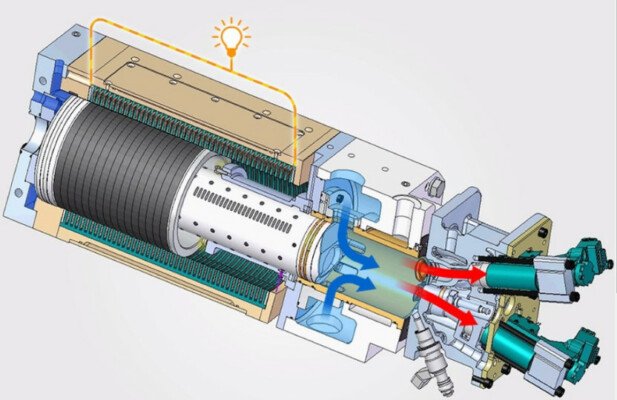|
Getting your Trinity Audio player ready...
|
To make sure you find the right route engine type for your particular needs, we have put together a helpful guide that outlines the top types currently on the market.
read on to learn more about what each type has to offer and potentially find the perfect match for your setup.

Here are 12 top route engine types
static route engine
Static route engines are the most basic type of engine available. They are typically used for simple network configurations and provide a straightforward way to set up routing tables. These engines can be used in both small and large networks, but they are not suitable for dynamic or changing environments.
dynamic route engines
Dynamic route engines offer more flexibility than static models by allowing adjustments to be made on the fly. This makes them ideal for larger networks that require frequent changes or upgrades. They also provide more detailed information about traffic patterns, which can help you optimize your network performance over time.
Cloud-based route engines
Cloud-based route engines are the latest innovation in this field and allow for easier management and scalability. These engines are hosted in the cloud and can be accessed from any device with an internet connection. This makes them ideal for larger networks that need to be managed remotely or from multiple locations.
Open source route engines
Open source route engines are available free of charge and can be customized to fit your specific needs. They provide a great way to experiment with routing technology without having to invest in expensive hardware or software. However, they may not offer as much functionality as commercial models, so it’s important to do your research before settling on one option.
Commercial route engines
Commercial route engines are typically the most expensive option but also the most reliable. They offer a wide range of features and can be scaled up or down depending on your needs. These engines are ideal for large networks that require advanced routing capabilities, such as high levels of security or traffic shaping.
hybrid route engines
Hybrid route engines are a combination of the above types and offer the best of both worlds. They provide the flexibility and scalability of cloud-based models as well as the advanced features and reliability of commercial options. These engines are ideal for organizations that need to manage multiple networks from different locations or require a mix of static and dynamic routing capabilities.
software-defined route engines
Software-defined route engines are designed to make routing easier and more efficient. They use software-defined networking (sdn) technology and can be managed remotely from a single interface. This makes them ideal for large networks that need to be managed from multiple locations or require automated routing configurations.
Autonomous route engines
Autonomous route engines are designed to be self-managing and can automatically adjust routing configurations based on changing network conditions. This makes them ideal for large and complex networks that require a high degree of control over traffic patterns. They are also capable of providing detailed analytics about network performance, which can help you optimize your network over time.
Network security route engines
Network security route engines are designed to provide a secure environment for sensitive data and communications. Also they can detect malicious traffic and help prevent unauthorized access to your network. Because these engines are ideal for organizations that need to protect their networks from external threats.
Edge computing route engines
Edge computing route engines are designed to optimize traffic patterns and reduce latency in distributed networks. . Also they connect devices across multiple locations and provide low-latency connections for applications that require real-time data processing. Because these engines are ideal for organizations that need to manage large amounts of data or deploy applications across multiple sites.
Cloud route engines
Cloud route engines are designed to provide a secure and reliable connection between cloud services and edge devices. Because they can create virtual private networks (vpns) or manage access control lists (acls). Also these engines are ideal for organizations that need to securely connect multiple cloud services or deploy applications across multiple locations.
Network performance route engines
Network performance route engines are designed to improve the reliability of network traffic and reduce latency. They can be used to detect congestion points in the network and adjust routing configurations accordingly. Because these engines are ideal for organizations that need to ensure high levels of performance across their networks
Conclusion
No matter which type of route engine you choose, it’s important to keep in mind that they are all designed with different purposes in mind and should be selected based on your network’s unique needs. Make sure to research each option thoroughly before making a final decision, as the wrong choice can lead to costly mistakes down the line.
